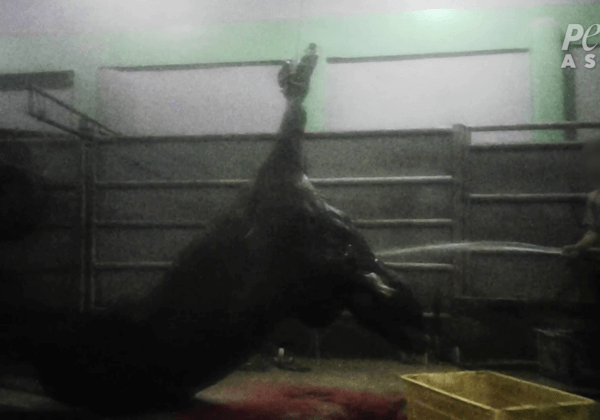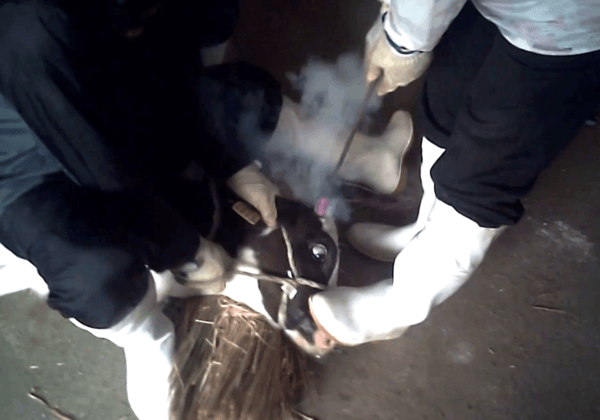Is ‘Halal’ Meat Really Halal?
 Islam has always viewed animals as a special part of God’s creation. The Qur’an, the Hadith, and the history of Islamic civilization offer many examples of kindness, mercy, and compassion for animals. The eating of meat, however—even when it’s labeled “halal”—is by no means merciful or kind.
Islam has always viewed animals as a special part of God’s creation. The Qur’an, the Hadith, and the history of Islamic civilization offer many examples of kindness, mercy, and compassion for animals. The eating of meat, however—even when it’s labeled “halal”—is by no means merciful or kind.
Halal products are often mislabeled. The eating of pigs, carnivorous animals, and blood is forbidden by Islamic law, but did you know that these are in many meat and dairy products that claim to be halal? Pig bones are frequently used in the feed for cows who are used to produce dairy products, and factory-farming methods often cause injury and swelling to cows’ udders, leading to the presence of blood in their milk. Chickens are routinely ground up and fed to sheep and other animals, in which case the meat is not halal, even if the approved dhabiha slaughter method is used.
Investigations into the sources of halal meat have also uncovered many unacceptable abuses and instances of neglect. Animals sent to slaughter arrive beaten and bruised, sometimes with open wounds. Knives are often not properly sharpened, resulting in much pain and suffering as the animals’ necks are sawed and hacked at. Some of the animals are skinned while they are still alive. One investigation into an Egyptian slaughterhouse revealed appalling abuses: Workers stabbed animals in the eyes and slashed their tendons—all without giving the animals any painkillers—before finally cutting the animals’ throats while they were still conscious. In a final act of cruelty, while the animals were bleeding to death, workers used knives to slash them under their tails.
Investigations in Jordan, Oman, Kuwait, and India (one of the world’s largest halal meat exporters) have also revealed shocking conditions. In India, during the journey from auction to slaughterhouse, cattle are often forced to walk hundreds of kilometers to and from trucking points. When cattle collapse from exhaustion, workers sometimes rub chili peppers, tobacco, or salt into the animals’ eyes or twist and break their tails in order to force them to move again. The animals are usually denied food, water, rest, or veterinary treatment during the forced marches and during truck transport, and many arrive at the slaughterhouse too sick or injured to walk.
Nothing in Islam requires Muslims to eat meat. Vegetarian foods that don’t contain dairy products are always guaranteed to be halal, which is one reason why more and more Muslims are going vegetarian.
There are many compassionate actions you can take to reduce the suffering of animals and avoid non-halal (haraam) foods:
- Take the Pledge to Be Veg and become a vegetarian today!
- Help spread the word to your friends and family members by posting on your Facebook, MySpace, Twitter, and Multiply pages.








